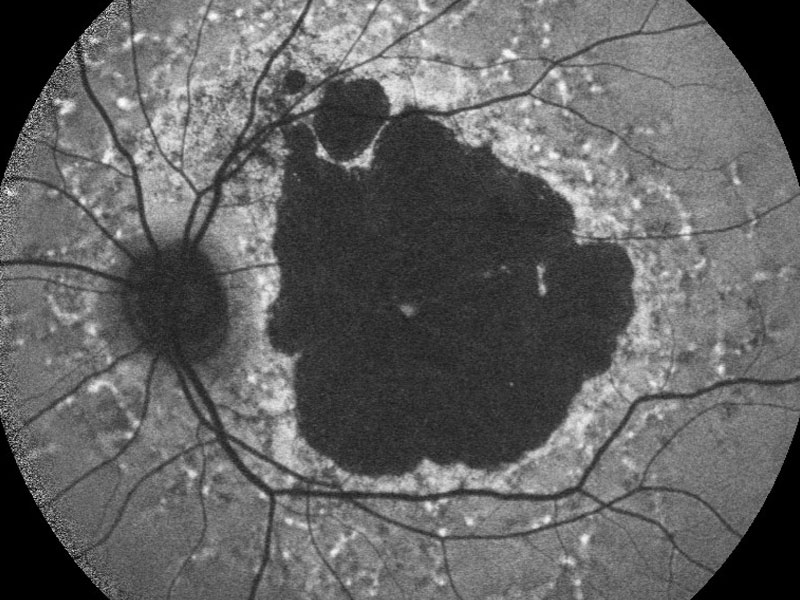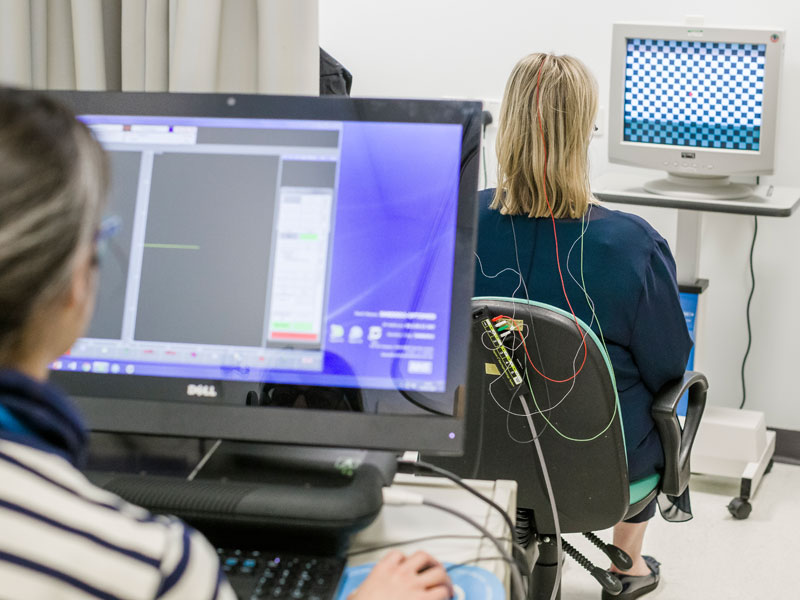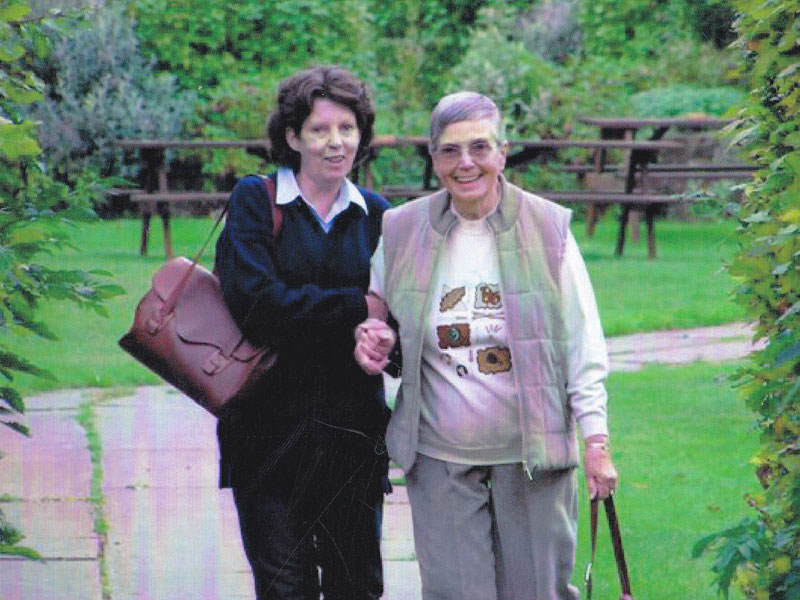A generous gift from the estate of Jean Williams will support a number of cutting-edge studies into macular disease, which affects nearly 1.5 million people and is the biggest cause of sight loss in the UK. The studies will be conducted by researchers from the Nuffield Department of Clinical Neurosciences at the University of Oxford.
Macular disease can have a devastating impact on people’s lives, leaving them unable to read, drive and recognise faces. It affects the macula – a small but significant part of the retina that is responsible for all of our central vision, most of our colour vision and our ability to see in fine detail.

There are many different forms of macular disease, but age-related macular disease (AMD) is the most common, typically affecting people aged over 50. There are also a large number of rare, inherited conditions known as macular dystrophies. These can manifest in childhood, although others do not present until later in life.
The Nuffield Department of Clinical Neurosciences is a centre of excellence for research into retinal diseases, of which macular disease and macular degeneration form a significant proportion. The department brings together clinician scientists and research scientists to advance understanding of these conditions, and to find new treatments using stem cell therapy, gene therapy and enhanced electronic devices.
Thanks to Mrs Williams’ generous legacy – which came to Oxford via the Charities Aid Foundation – researchers within the department will now undertake a range of pioneering studies into macular disease. Subjects under investigation include the structure and function of the brain’s response to inherited macular disease, and the effect of different gene-targeted approaches to AMD.

Another of the studies will explore unsolved cases of inherited macular dystrophies, with researchers using next-generation DNA sequencing data to identify the genes and variants responsible. In these cases, patients will be provided with a diagnosis and information regarding inheritance patterns in their families, and any novel genes discovered will be used to develop future treatments.
Susan Downes, Professor of Ophthalmology and Consultant Ophthalmic Surgeon, says: ‘We are so grateful for the Jean Williams donation. This will have such a huge impact on our ability to carry out research into the causes and treatments for inherited macular disease.’
Mrs Williams, who passed away in 2017 at the age of 96, was diagnosed with inherited macular dystrophy when she was a child. Her cousin and executrix Jan Winstanley, says: ‘Blindness doesn’t affect just one person, it affects the whole family. The Nuffield Department of Clinical Neurosciences is doing astonishing things in the field, so I am excited to see what happens in the next few years. My mother, grandmother and great grandmother were also affected by the disease, and while unfortunately this ground-breaking research couldn’t help my family, it could help millions of people.’
